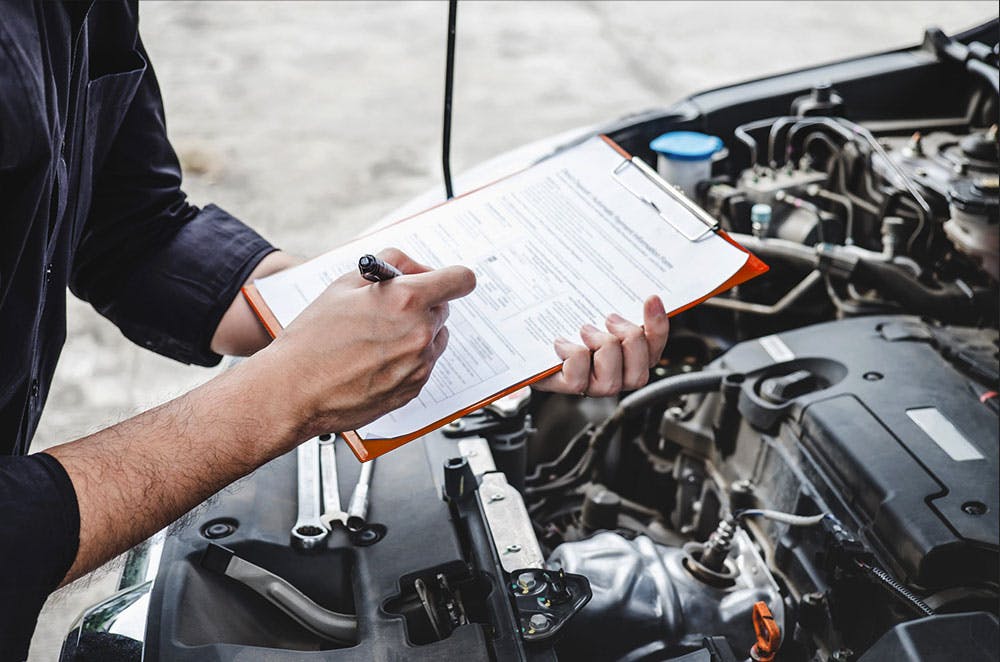All Categories
Featured
Your vehicle's engine is just one of one of the most complex systems in your car, and every part plays a crucial function in guaranteeing it runs smoothly. Among these, the timing belt is just one of one of the most important but frequently overlooked parts of your engine. In charge of synchronizing the rotation of the crankshaft and camshaft, the timing belt ensures the engine's valves open and close at the correct times throughout the burning process. If the timing belt falls short, it can cause extreme engine damages. Right here's why timing belt replacement is necessary for your lorry's efficiency and long life.
What Is a Timing Belt? The timing belt is a long, toothed rubber or composite belt that links the crankshaft to the camshaft(s) in an interior combustion engine. Its task is to keep the engine's shutoffs and pistons in sync, making sure the engine runs successfully. The timing belt additionally controls various other critical engine features like the water pump and the power guiding pump, relying on the lorry.
![]()
Without the proper timing, the engine's shutoffs and pistons can collide, resulting in considerable and costly damages. For that reason, changing the timing belt on routine is one of the best methods to ensure your engine runs at its ideal and avoid pricey repair work.
Why Timing Belt Substitute Matters. Avoiding Catastrophic Engine Damage: The most considerable danger of not replacing a used timing belt is engine failure. If the timing belt breaks while the engine is running, the camshaft and crankshaft can come to be misaligned, creating the valves and pistons to collide. This can bring about bent shutoffs, harmed pistons, or perhaps a ruined engine. Replacing the timing belt at the advised intervals is the very best method to stop such disastrous damage, saving you from the anxiety and high expense of engine repairs or replacement.
![]()
Maintaining Engine Effectiveness: A timing belt that's in great problem makes certain that all engine components operate in best harmony. If the timing belt is used or stretched, it can trigger the engine to lose power, experience harsh idling, or battle to start. By changing the timing belt consistently, you can maintain your engine going for peak performance, which helps keep optimal fuel economic climate and efficiency.
Preventing Unexpected Failures: A damaged timing belt can cause your engine to quit quickly, potentially leaving you stranded in the center of a trip. By changing your timing belt on time, you reduce the risk of sudden malfunctions that might leave you in a risky or troublesome circumstance. Regular upkeep decreases the possibilities of experiencing these kinds of interruptions, aiding you remain on the roadway much longer without fretting about your engine failing.
Cost-Effective Maintenance: Timing belt substitute is much more economical than repairing or changing an engine that's been damaged as a result of a timing belt failing. While the expense of changing the timing belt may vary relying on your vehicle and its location, it is far a lot more affordable than the prices connected with significant engine fixings or substitutes. Replacing your timing belt at the recommended periods can save you a significant quantity of cash over the long term by preventing damage to your engine.
When Should You Replace Your Timing Belt? The timing belt doesn't last forever, and most manufacturers suggest replacing it in between 60,000 and 100,000 miles. The precise timing depends on your vehicle's make, design, and driving conditions, so it's crucial to examine your owner's handbook for details support.
Indications that your timing belt may need interest include uncommon engine sounds (such as a shrill whining or ticking noise), difficulty starting the engine, or a decrease in engine performance. It's important to have the timing belt inspected by a professional mechanic. if you observe any of these indications.
![]()
Final thought. The timing belt is a small but crucial component of your engine, and normal replacement is vital to keeping your automobile's performance and preventing pricey damages. By remaining on top of timing belt maintenance, you'll ensure your engine runs efficiently, avoid unforeseen breakdowns, and shield your auto from significant fixings. Watch on your vehicle's suggested timing belt substitute routine, and constantly seek advice from a relied on technician to keep your engine running smoothly for several years to come.
What Is a Timing Belt? The timing belt is a long, toothed rubber or composite belt that links the crankshaft to the camshaft(s) in an interior combustion engine. Its task is to keep the engine's shutoffs and pistons in sync, making sure the engine runs successfully. The timing belt additionally controls various other critical engine features like the water pump and the power guiding pump, relying on the lorry.

Without the proper timing, the engine's shutoffs and pistons can collide, resulting in considerable and costly damages. For that reason, changing the timing belt on routine is one of the best methods to ensure your engine runs at its ideal and avoid pricey repair work.
Why Timing Belt Substitute Matters. Avoiding Catastrophic Engine Damage: The most considerable danger of not replacing a used timing belt is engine failure. If the timing belt breaks while the engine is running, the camshaft and crankshaft can come to be misaligned, creating the valves and pistons to collide. This can bring about bent shutoffs, harmed pistons, or perhaps a ruined engine. Replacing the timing belt at the advised intervals is the very best method to stop such disastrous damage, saving you from the anxiety and high expense of engine repairs or replacement.

Maintaining Engine Effectiveness: A timing belt that's in great problem makes certain that all engine components operate in best harmony. If the timing belt is used or stretched, it can trigger the engine to lose power, experience harsh idling, or battle to start. By changing the timing belt consistently, you can maintain your engine going for peak performance, which helps keep optimal fuel economic climate and efficiency.
Preventing Unexpected Failures: A damaged timing belt can cause your engine to quit quickly, potentially leaving you stranded in the center of a trip. By changing your timing belt on time, you reduce the risk of sudden malfunctions that might leave you in a risky or troublesome circumstance. Regular upkeep decreases the possibilities of experiencing these kinds of interruptions, aiding you remain on the roadway much longer without fretting about your engine failing.
Cost-Effective Maintenance: Timing belt substitute is much more economical than repairing or changing an engine that's been damaged as a result of a timing belt failing. While the expense of changing the timing belt may vary relying on your vehicle and its location, it is far a lot more affordable than the prices connected with significant engine fixings or substitutes. Replacing your timing belt at the recommended periods can save you a significant quantity of cash over the long term by preventing damage to your engine.
When Should You Replace Your Timing Belt? The timing belt doesn't last forever, and most manufacturers suggest replacing it in between 60,000 and 100,000 miles. The precise timing depends on your vehicle's make, design, and driving conditions, so it's crucial to examine your owner's handbook for details support.
Indications that your timing belt may need interest include uncommon engine sounds (such as a shrill whining or ticking noise), difficulty starting the engine, or a decrease in engine performance. It's important to have the timing belt inspected by a professional mechanic. if you observe any of these indications.

Final thought. The timing belt is a small but crucial component of your engine, and normal replacement is vital to keeping your automobile's performance and preventing pricey damages. By remaining on top of timing belt maintenance, you'll ensure your engine runs efficiently, avoid unforeseen breakdowns, and shield your auto from significant fixings. Watch on your vehicle's suggested timing belt substitute routine, and constantly seek advice from a relied on technician to keep your engine running smoothly for several years to come.
Latest Posts
Comprehending the Relevance of Timing Belt Substitute for Your Engine
Published Jan 07, 25
0 min read
What to Do If Your Auto Overheats and Exactly How to avoid It
Published Jan 07, 25
0 min read
Maximize Your Space: 10 Genius Living Room Furniture Ideas for Small Homes
Published Jan 07, 25
2 min read
More
Latest Posts
Comprehending the Relevance of Timing Belt Substitute for Your Engine
Published Jan 07, 25
0 min read
What to Do If Your Auto Overheats and Exactly How to avoid It
Published Jan 07, 25
0 min read
Maximize Your Space: 10 Genius Living Room Furniture Ideas for Small Homes
Published Jan 07, 25
2 min read